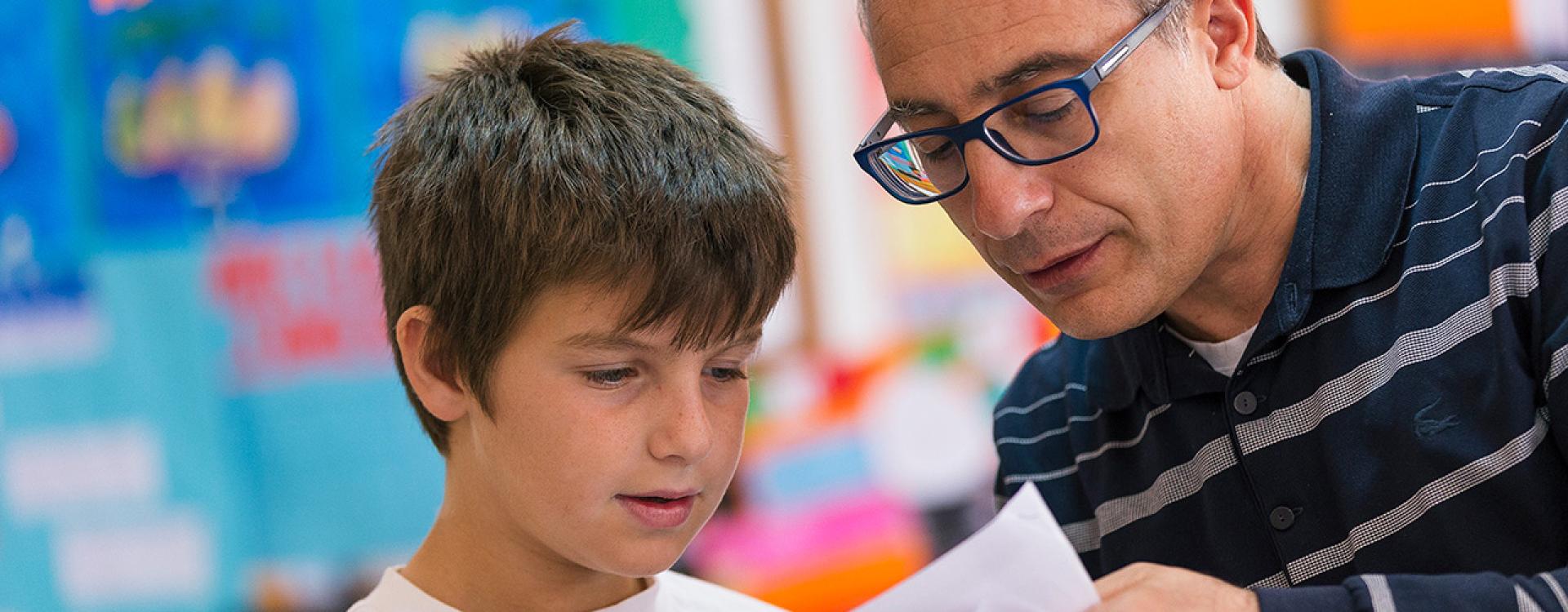Key Stage 2
Key stage 2 is for children aged 7 – 11 and comprises Years 3 – 6. It has a three- or four-form entry, which means that there are usually three classes for each year group. Class sizes are kept small, under 25 pupils.
Key stage 2 is covered by a unified curriculum which follows the Cambridge Primary Programme in the core curriculum and in foundation subjects, the National Curriculum of England is followed. In this broad range of subjects including history, geography, computing, art and design, PE and music, the timetable is organised with seamless progression and development through and between key stages.
The timetable gradually grows along with the child as subjects broaden:
In year 3, children only take one second language, Greek.
In year 4, a further modern foreign language course is introduced, as well as a Greek language History course option for native Greek speakers.
Throughout key stage 2, constant and varied formative assessment is provided in order to address each child’s needs and create considerable momentum in learning (e.g. through metacognition questioning at the end of lessons). Children have summative assessments throughout the year with weekly quizzes in spelling and mental maths, as well as more comprehensive end-of-unit reviews in English, Maths and Science every half term.
During year 6, they take Cambridge Progression tests at the end of the year, in May, in the three core subjects of English, Maths and Science. Ample preparation and support is provided for every pupil before these tests.
In lower key stage 2, reading is still closely monitored by teachers who issue weekly readers at an appropriate level for extra practice at home. This gradually becomes less formalised towards upper key stage 2 as each pupil reaches the point at which they are considered an independent reader: at this stage it becomes more about the child’s own book choices, although these decisions are always preceded by discussion around available options and suitable titles.
In this context, novels are selected and taught as an integral part of the English curriculum. Such titles currently include year 3's Roald Dahl selection; year 4's study of Neil Gaiman's 'Wolves in the Walls'; year 5's take on Chris Riddell’s 'Goth Girl and the Ghost of a Mouse'; and year 6's in-depth study of Michael Morpurgo's 'War Horse' as well as Harry Potter adventures in the spring term.
Children who take English as an Additional Language (EAL) join mainstream classes when they are able to; each case is examined individually for that decision to be made. Pupils are integrated into their class from the earliest possible time though, as they participate in a range of lessons such as PE and art with their mainstream class from the beginning.
By the time pupils reach the end of year 6, they are ready for all that high school will challenge them with. They will have developed the necessary resilience and fortitude needed to deal with any number of issues, small or large, that their future education puts in front of them. They will be capable readers, competent mathematicians, curious scientists and all round inquisitive learners who have garnered strength from their experiences to date.




